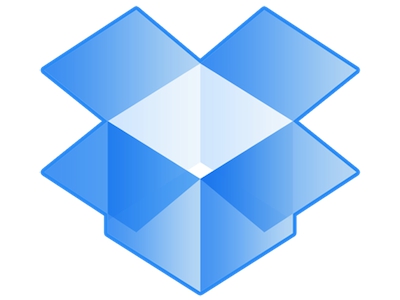Dropbox Now Allows Public Sharing of Files
Dropbox users can now share videos, picures and documents to friends and family who don't need a Dropbox account.

Here's a bit of news that should get the MPAA all fired up: Dropbox now offers public file sharing.
On Monday Dropbox announced that it has added a public file sharing option to its virtual locker service, allowing users to send links leading back to documents, photos, and videos to anyone, whether they're Dropbox members or not. Previously users could send links, but the recipient needed to create a Dropbox account in order to view and use the files.
"Dropbox links allow people to easily view documents, photos, and videos in a beautiful full-browser display without any setup," the company explains. "Business presentations, home movies, and even entire folders can be opened and viewed instantly without having to sign in, download anything, or open files separately."
In the Dropbox desktop, mobile and web-based applications, the "Get Link" button creates a unique link to the desired file or folder. The link can then be sent to other users -- if they're already a Dropbox member, they'll have the added option of saving the file to their own Dropbox virtual locker.
"Anyone with the link gets access to a snazzy page where they can view (but not edit) your stuff," the company said in a blog. "Our gallery pages give your photos, videos, and even docs the gorgeous, full-browser view they deserve. This means that people who follow your link can see pictures, look at presentations, and watch home videos without having to download and open them separately."
The news arrives just before Google reportedly launches its own virtual locker service, Google Drive. Little is known about the service at this point save for that it will start with 5 GB of free storage. Given the new Dropbox feature, it's easy to assume that Google Drive will also provide a public file sharing option. Google Drive is slated to launch on Wednesday or Thursday although Google hasn't officially acknowledged a street date.
Just recently Dropbox announced that Bono and The Edge from the popular Irish band U2 are now investors in the company. The two reportedly came across Dropbox when they were building a project on Facebook. Once Dropbox raised $250 million last year, the duo decided the online storage business might actually be profitable.
Sign up to get the BEST of Tom's Guide direct to your inbox.
Get instant access to breaking news, the hottest reviews, great deals and helpful tips.
"We're always looking for ways to make life easier and solve the basic problems people face everyday," said Drew Houston, CEO and co-founder of Dropbox. "Sending files has always been a painful process, but now with Dropbox, sharing with friends, family, and colleagues is effortless."
Kevin started taking PCs apart in the 90s when Quake was on the way and his PC lacked the required components. Since then, he’s loved all things PC-related and cool gadgets ranging from the New Nintendo 3DS to Android tablets. He is currently a contributor at Digital Trends, writing about everything from computers to how-to content on Windows and Macs to reviews of the latest laptops from HP, Dell, Lenovo, and more.
-
the_krasno So, how long till they are persecuted like Megaupload and many other sites? I really like dropbox :(Reply -
classzero The MPAA is already building the stake to burn Dropbox, and anyone else they feel like with their witch hunts.Reply -
molo9000 the_krasnoSo, how long till they are persecuted like Megaupload and many other sites? I really like dropboxReply
The case against Megaupload and other sites was made because those sites offered monetary rewards for the most downloaded files and thus encouraged and profited from sharing copyrighted material.
Sites like Rapidshare, that don't do that (anymore), were not targeted, because it's not illegal to offer public file sharing. -
thrillhaus eddieroolzI thought this was always the case?Me too. I've been sharing public links to Dropbox files for years, mostly through screenshots through GrabBox.Reply -
molo9000The case against Megaupload and other sites was made because those sites offered monetary rewards for the most downloaded files and thus encouraged and profited from sharing copyrighted material.Sites like Rapidshare, that don't do that (anymore), were not targeted, because it's not illegal to offer public file sharing.Sir, you are talking out of your ass. Rapidshare and others that don't offer rewards were not targeted first, but they are still on MPAA/RIAA's wish list.Reply
-
molo9000 andboomerSir, you are talking out of your ass. Rapidshare and others that don't offer rewards were not targeted first, but they are still on MPAA/RIAA's wish list.Reply
Yes, they are on their wish-list, but it's hard to make a case against a simple file sharing service.
If service providers were liable for what it's users upload/use a service for, then pretty much all the internet would be sued out of existence. -
molo9000Yes, they are on their wish-list, but it's hard to make a case against a simple file sharing service.If service providers were liable for what it's users upload/use a service for, then pretty much all the internet would be sued out of existence.Oh I don't disagree. I'm just saying that MPAA/RIAA are actively pursuing these other lockers. Rapidshare will be one of the last to be attacked because they have a strong legal and lobbying presence, stopped their rewards program, and didn't egg on the copyright holders (in contrast to Megaupload's apparent strategy of requesting that MPAA/RIAA "suck deez nutz").Reply
-
Christopher1 molo9000The case against Megaupload and other sites was made because those sites offered monetary rewards for the most downloaded files and thus encouraged and profited from sharing copyrighted material.Sites like Rapidshare, that don't do that (anymore), were not targeted, because it's not illegal to offer public file sharing.Reply
Problem is that it is not illegal to offer monetary rewards AND MegaUpload and most others removed accounts when they found that someone was sharing copyrighted stuff, whether they were getting paid for it or not.
Bottom line is that what MegaUpload was doing was and is not illegal by the letter of the law. The MPAA is trying to bullshit about Kim Dotcom uploading a file to the service that was 'illegal', but it was his own personal backup to test a new site function. It had a grand total of ZERO downloads.
They are also trying to bullshit about "MegaUpload knew about the piracy!" Well, sure they did.... that's how they removed accounts that were used for piracy!
